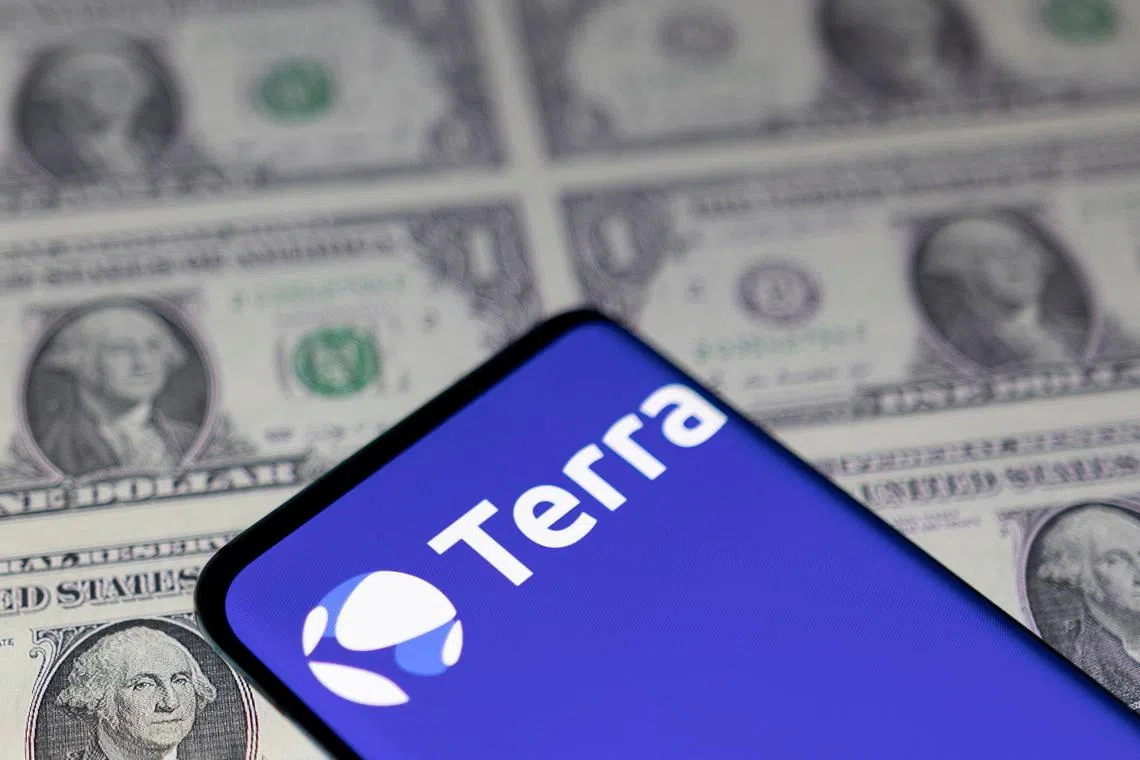South Korea seeking arrest of Terraform co-founder Daniel Shin
Sign up now: Get ST's newsletters delivered to your inbox

Terraform's TerraUSD stablecoin and its sister token Luna collapsed in May, triggering a US$60 billion cryptocurrency wipeout.
PHOTO: REUTERS
SEOUL - South Korean prosecutors indicated they are seeking the arrest of Terraform Labs co-founder Daniel Shin, stepping up their investigation of a US$60 billion (S$81.6 billion) cryptocurrency wipeout.
The prosecutors’ office said on Wednesday that reports it is seeking warrants for Shin and seven others on charges including fraud “aren’t false”.
All eight are in South Korea and other allegations include breach of duty, violation of capital markets law and illegal fund raising, the office indicated.
Seoul Southern District Court will hold a hearing on Friday to decide whether to issue the warrants, a judge said in a text message.
Shin is now the head of fintech firm Chai Corp. A spokesman for Chai could not immediately be reached for comment.
The TerraUSD stablecoin, which was meant to have a stable US$1 value, and its sister token Luna collapsed in May.
That wipeout and the recent slide into bankruptcy of Mr Sam Bankman-Fried’s FTX empire rank as among the biggest blow-ups ever seen in crypto, which is reeling from a prolonged rout.
Fallen crypto entrepreneur Do Kwon is the other founder location became unclear
Shin’s lawyers have previously emphasised that he has not been involved in Terra operations since 2020, when he broke up with the company. They have denied claims that Shin profited from illegal sales of the Luna token to the tune of 140 billion won (S$146 million).
Fintech company Chai said in a statement in May that Kwon and Shin started Terraform Labs together in 2018 and initially evenly split its ownership. Their idea was to use blockchain technology for payment services but they later decided to part ways, according to Chai. BLOOMBERG


